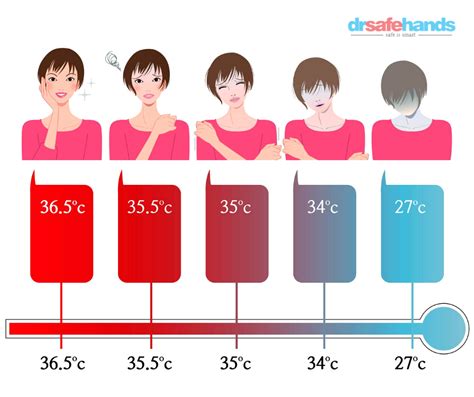Intro
Discover the normal human body temperature range, factors affecting it, and how to maintain optimal thermal balance, including basal body temperature, fever, and hypothermia risks, for overall health and wellness.
The human body is a complex and fascinating system, with many intricate processes working together to maintain our overall health and well-being. One of the most important aspects of our bodily functions is our body temperature, which plays a crucial role in our ability to fight off infections, regulate our metabolism, and even affect our mood and energy levels. Normal human body temperature is a vital sign that is often taken for granted, but it is essential to understand its importance and the factors that can influence it.
The average human body temperature is around 98.6 degrees Fahrenheit (37 degrees Celsius), although it can vary slightly from person to person. This temperature range is necessary for our bodily functions to operate efficiently, and even small changes can have significant effects on our overall health. For example, a body temperature that is too high or too low can be a sign of an underlying infection or disease, and in severe cases, it can even be life-threatening. Understanding the importance of normal human body temperature and the factors that can affect it is crucial for maintaining our overall health and well-being.
The human body has a remarkable ability to regulate its temperature, despite changes in the external environment. This is achieved through a complex system of thermoregulation, which involves the hypothalamus, the brain's temperature control center, and various physiological responses such as sweating, shivering, and vasodilation. These mechanisms work together to maintain a stable body temperature, even in extreme conditions, and are essential for our survival. In this article, we will delve deeper into the world of normal human body temperature, exploring its importance, the factors that can influence it, and the mechanisms that regulate it.
What is Normal Human Body Temperature?

Factors that Influence Body Temperature
There are several factors that can influence body temperature, including: * Age: Body temperature can vary with age, with older adults tend to have a lower body temperature than younger adults. * Sex: Women tend to have a slightly higher body temperature than men, especially during the menstrual cycle. * Activity level: Engaging in physical activity can raise body temperature, while rest and relaxation can lower it. * Environment: Exposure to extreme temperatures, such as heat or cold, can affect body temperature. * Time of day: Body temperature can vary throughout the day, with a natural dip in temperature during sleep.How is Body Temperature Regulated?

Importance of Normal Body Temperature
Maintaining a normal body temperature is essential for our overall health and well-being. Even small changes in body temperature can have significant effects on our bodily functions, including: * Metabolism: Body temperature affects the rate of metabolic reactions, with optimal temperatures ranging between 97.7 and 99.5 degrees Fahrenheit (36.5 and 37.5 degrees Celsius). * Immune function: A normal body temperature is necessary for the proper functioning of the immune system, with fever being a common response to infection. * Cognitive function: Body temperature can affect cognitive function, with changes in temperature influencing mood, attention, and memory.Abnormal Body Temperature

Treatment and Management
Treatment and management of abnormal body temperature depend on the underlying cause. In cases of fever, treatment may involve: * Medications: Such as acetaminophen or ibuprofen to reduce fever. * Rest and hydration: To help the body recover from infection. * Cooling measures: Such as cool compresses or cooling blankets to reduce body temperature. In cases of hypothermia, treatment may involve: * Warming the body: Using blankets, warm water, or other warming devices to raise body temperature. * Medical attention: Seeking medical attention immediately, as hypothermia can be life-threatening.Conclusion and Final Thoughts

Final Recommendations
To maintain a healthy body temperature, it's essential to: * Stay hydrated: Drink plenty of water to help regulate body temperature. * Dress appropriately: Wear clothing that allows for good airflow and helps to regulate body temperature. * Avoid extreme temperatures: Avoid exposure to extreme heat or cold, which can affect body temperature. * Get enough rest: Aim for 7-9 hours of sleep per night to help regulate body temperature.What is the normal range for human body temperature?
+The normal range for human body temperature is between 97.7 and 99.5 degrees Fahrenheit (36.5 and 37.5 degrees Celsius), with an average temperature of around 98.6 degrees Fahrenheit (37 degrees Celsius).
What factors can influence body temperature?
+Factors that can influence body temperature include age, sex, activity level, environment, and time of day.
How is body temperature regulated?
+Body temperature is regulated through a complex system of thermoregulation, which involves the hypothalamus, the brain's temperature control center, and various physiological responses such as sweating, shivering, and vasodilation.
